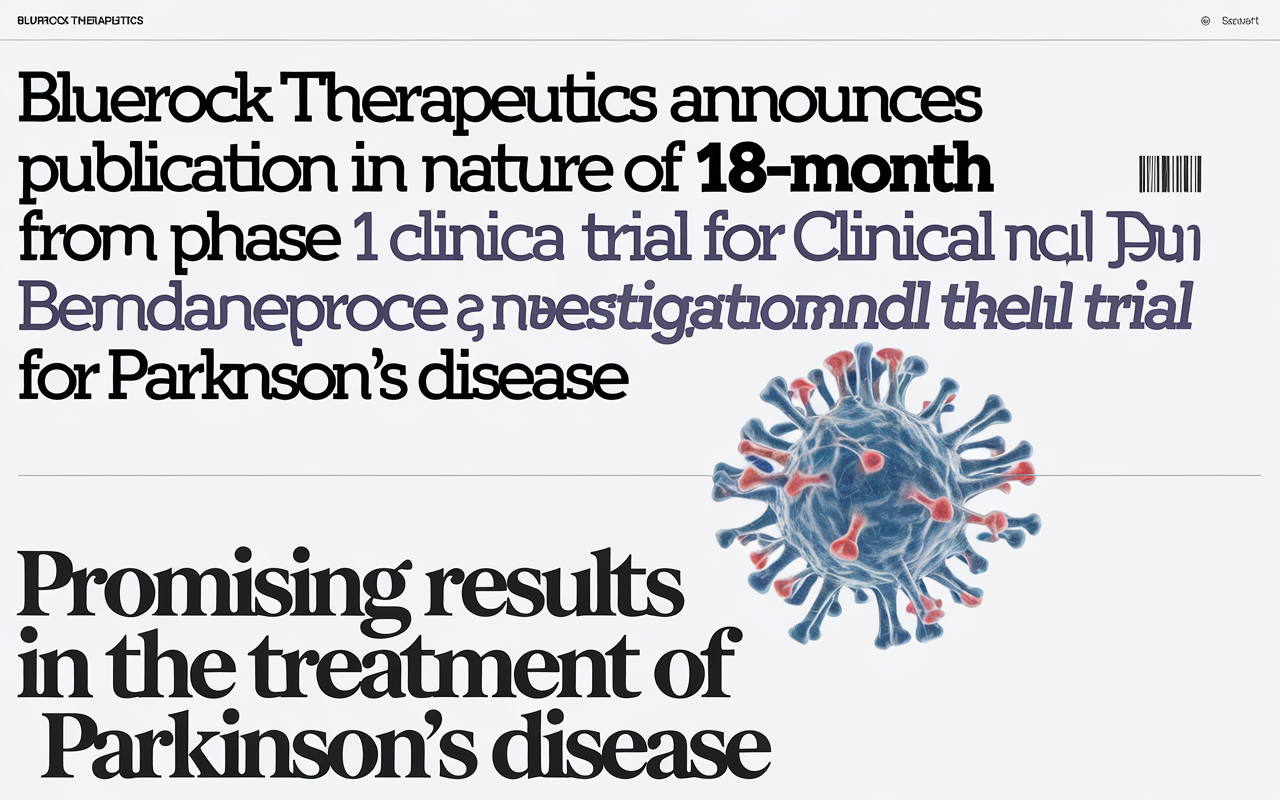Welcome, BioPharma Enthusiasts!
As the pace of innovation accelerates, staying informed has never been more crucial. In this issue, we're diving into breakthroughs that could reshape the biopharmaceutical landscape.
What's in this issue:
- 🧠 First-ever CRISPR injection directly into the brain
- 🧬 Rebuilding neural networks to combat Parkinson's disease
- 💊 Existing drugs finding new life against immune paralysis
- 🔬 Confirming a 67-year-old vitamin B1 hypothesis
- 🛡️ Enhancing antibody effectiveness in immune responses
Quote of the Day
"The only way to discover the limits of the possible is to go beyond them into the impossible." - Arthur C. Clarke
Latest Developments
🧠 Startup is first to inject CRISPR in the brain (2 minute read)

Rundown: A pioneering startup has made history by becoming the first to inject CRISPR gene-editing tools directly into the human brain. This groundbreaking approach aims to tackle genetic disorders at their source, offering hope for conditions previously deemed untreatable.
Keypoints
- 🧬 Direct delivery of CRISPR to neural cells
- 🧠 Potential to treat neurodegenerative diseases
- 🚀 Marks a significant milestone in gene therapy
- 🌐 Opens avenues for future neurological research
Why it matters: This advancement could revolutionize how we approach the treatment of genetic brain disorders, offering new therapeutic avenues and underscoring the transformative potential of gene editing in medicine.
🧬 BlueRock Therapeutics publishes 18-month data on Parkinson's cell therapy (2 minute read)

Rundown: BlueRock Therapeutics reports promising 18-month results from its Phase 1 clinical trial of bemdaneprocel, an investigational cell therapy for Parkinson's disease. The therapy focuses on 'rebuilding' brain networks lost to the disease, potentially altering the treatment landscape.
Keypoints
- 🧪 Bemdaneprocel shows sustained safety and tolerability
- 🧠 Aims to regenerate neural pathways affected by Parkinson's
- 📄 Findings published in the prestigious journal Nature
- 🤝 Collaboration between BlueRock Therapeutics and Bayer AG
Why it matters: These findings offer hope for Parkinson's patients by introducing a novel approach that addresses the disease's underlying causes, potentially improving quality of life and slowing disease progression.
💊 Existing drug shows potential against immune paralysis (2 minute read)

Rundown: Researchers from Radboud University Medical Center have discovered that an existing medication can reactivate dysfunctional immune cells. This breakthrough could lead to new treatments for patients suffering from immune paralysis, particularly those in intensive care with sepsis.
Keypoints
- 🩺 Revival of non-functioning immune cells
- 🔄 Repurposing an existing drug for new therapeutic use
- 🧫 Potential applications in treating sepsis patients
- 🧪 Provides a foundation for further clinical research
Why it matters: By breathing new life into existing drugs, we can expedite the development of treatments for critical conditions, offering timely solutions for patients in dire need.
Question of the Day
❓ How do you think gene editing should be utilized in treating neurological diseases?
- 🔬 It should be used cautiously with rigorous testing
- 🚀 We should accelerate development for immediate use
- 🤔 More research is needed before clinical application
Trending
🧪 Scientists confirm 67-year-old vitamin B1 hypothesis
- Chemists have stabilized a reactive molecule in vitamin B1, solving a long-standing biochemical mystery and potentially leading to greener pharmaceutical manufacturing processes.
🛡️ Empowering antibodies to better activate the immune system
- A study from Scripps Research reveals how a higher ratio of antibodies to viral proteins enhances immune cell engagement, offering insights for vaccine development.
Industry Insight
🔬 The Importance of Early-Stage Research Showcased at AACR
The annual meeting of the American Association for Cancer Research (AACR) highlights the critical role early-stage research plays in the development of groundbreaking therapies. While large-scale clinical trials grab headlines, it's the foundational studies presented at AACR that pave the way for future innovations.
By focusing on novel molecules and preliminary data, researchers can identify promising avenues that may lead to the next generation of cancer treatments. Staying abreast of these developments allows industry professionals to anticipate shifts in the therapeutic landscape.
Quick Hits
💼 Earnings season insights from pharma executives (1 minute read)
- Pharma companies report first-quarter earnings, discussing tariff exposures and dealmaking strategies amidst a dynamic market environment.
📝 STAT readers share opinions on the animal wellness industry (1 minute read)
- Engaging letters to the editor provide diverse perspectives on biotech philanthropy and drug pricing, fostering community dialogue.
🧫 J&J's bladder cancer 'pretzel' drug shows durability (1 minute read)
- Johnson & Johnson reports sustained complete responses in patients treated with its innovative drug-device combo for bladder cancer.
Wrap Up
As we continue to witness remarkable strides in biopharmaceutical innovation, it's essential to stay connected and informed. Thank you for joining me on this journey through the latest developments shaping our industry. If you found this newsletter valuable, I encourage you to share it with colleagues and friends who share our passion for advancing healthcare.
Stay curious and keep pushing the boundaries.
Warm regards,
Elliot Reeves | BioPharmaPulse
😊 How did you like today's email?
- 😀 Loved it
- 🙂 It was OK
- 😕 Could be better
